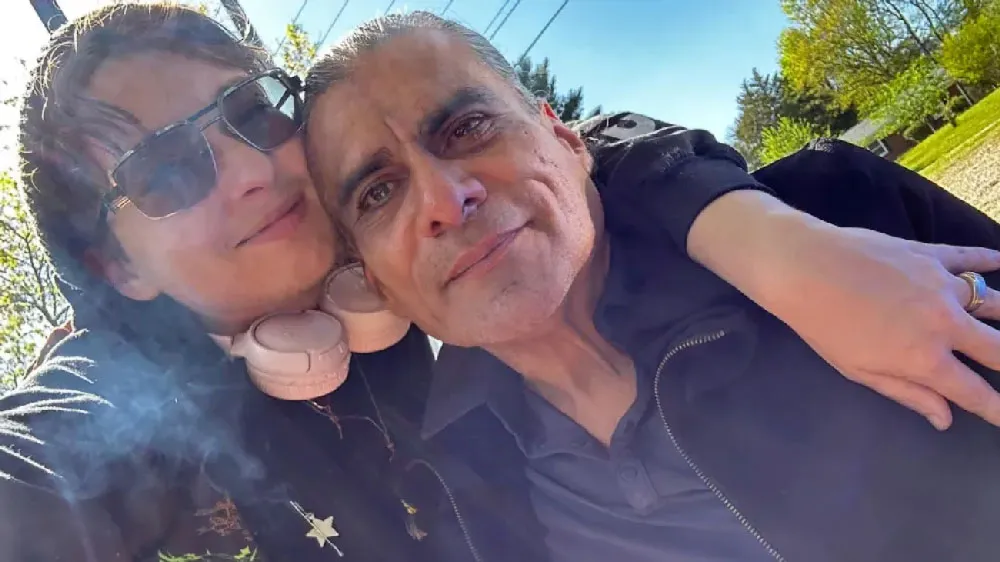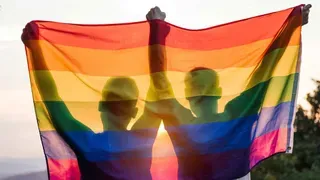February 21, 2007
Gay Community Remembers Barbara Gittings
Peter Cassels READ TIME: 3 MIN.
GLBT activists throughout the nation are mourning the loss of Barbara Gittings, often called the Rosa Parks of the gay rights movement. Gittings died of breast cancer Feb. 18 at the age of 75.
National organizations this week issued statements about her passing and she was honored with a wreath-laying ceremony across from Independence Hall in Philadelphia, the site of a historic gay rights demonstration she helped organize in 1965.
That same year, Gittings participated in the first gay picketing of the White House, the Pentagon and other federal buildings and sites.
Her activism began in 1958, when she helped organize the New York City chapter of the Daughters of Bilitis, the nation's first lesbian organization. In the 1970s, she successfully campaigned, along with other activists, to remove homosexuality from the American Psychiatric Association's list of mental disorders. Gittings also helped to found the Gay Task Force of the American Library Association, the first gay caucus in a professional organization.
Her contributions to the development of the GLBT civil rights movement have been examined in several acclaimed documentary films, including Before Stonewall, After Stonewall, Out of the Past and Gay Pioneers.
Human Rights Campaign President Joe Solmonese called Gittings "a true pioneer" of the GLBT community: "We mourn the loss of a courageous friend and fellow activist. We know that future generations of civil rights advocates will learn from the shining example Ms. Gittings set."
Neil Giuliano, president of the Gay & Lesbian Alliance Against Defamation, said she "was a singular, inimitable civil rights icon." "Of the many gifts Barbara Gittings leaves behind, her insistence that gay and lesbian lives be viewed honestly and openly, through human eyes and through human stories, may be her defining legacy," he added.
Dixon Osburn, executive director of Servicemembers Legal Defense Network, the national organization advocating for gays in the military, described her as "a tireless activist who dedicated her life to equal opportunity, [who] tore down countless walls of discrimination and broke through glass ceiling after glass ceiling. She refused to be considered second-class by the White House, the Pentagon or the country. Her work moved our community immeasurably forward and her passion inspired others to stand up, step forward and come out. She will be greatly missed."
Gittings and life partner Kay Lahausen lived in Philadelphia and Wilmington, Del., until they moved recently to an assisted living center in Kennett Square, Pa., where Gittings died.
It was therefore fitting that the Philadelphia gay community remembered her in the Independence Hall wreath-laying ceremony on Feb. 20. About 70 people gathered in front of the Pennsylvania Historical Marker commemorating the first annual demonstrations for gay and lesbian civil rights held each July 4 from 1965 to 1969.
Malcolm Lazin, executive director of Equality Forum, spoke about Gittings' lifelong contributions to the GLBT civil rights movement before the wreath was placed at the foot of the marker by community leaders Stacey Sobel and Virginia Gutierrez.
"In 1965, gays and lesbians were precluded from all federal government employment," Lazin recalled. "[They] could not be employed as scientists, postal workers, or as janitors. The American Psychiatric Association classified being gay as a mental illness. Almost all states made it criminal for consenting adults of the same sex to share intimacy. Most states made it a crime for two or more known homosexuals to congregate in a bar. The police routinely entrapped and blackmailed gays."
Lazin went on to describe the first historic demonstration in front of Independence Hall on July 4, 1965, in which 40 pioneering activists participated. Besides Gittings, they included Frank Kameny, often called the father of the gay and lesbian civil rights movement.
"Like Rosa Parks in 1955, Barbara Gittings in 1965 confronted the oppressor," he said. "Like Rosa Parks, Barbara did so publicly and with remarkable modesty, courage and grace. Barbara stepped forward in the face of a tsunami of homophobia and understood the societal consequences."
Lazin concluded his remarks by stating, "Through her life's work, Barbara has earned her place in a pew with Susan B. Anthony and Rosa Parks. We stand on her shoulders. We pledge to celebrate her memory by rededicating our lives to her dream. A dream when gay youth will no longer hear the word 'faggot' in public schools. A dream of a time when hate crimes have disappeared. A dream that every person no matter their sexual orientation is treated with dignity, respect and equality. It is an American dream. It is an international human rights dream. We rededicate ourselves to that dream."
Peter Cassels is a recipient of the National Lesbian and Gay Journalists Association's Excellence in Journalism award. His e-mail address is [email protected].






